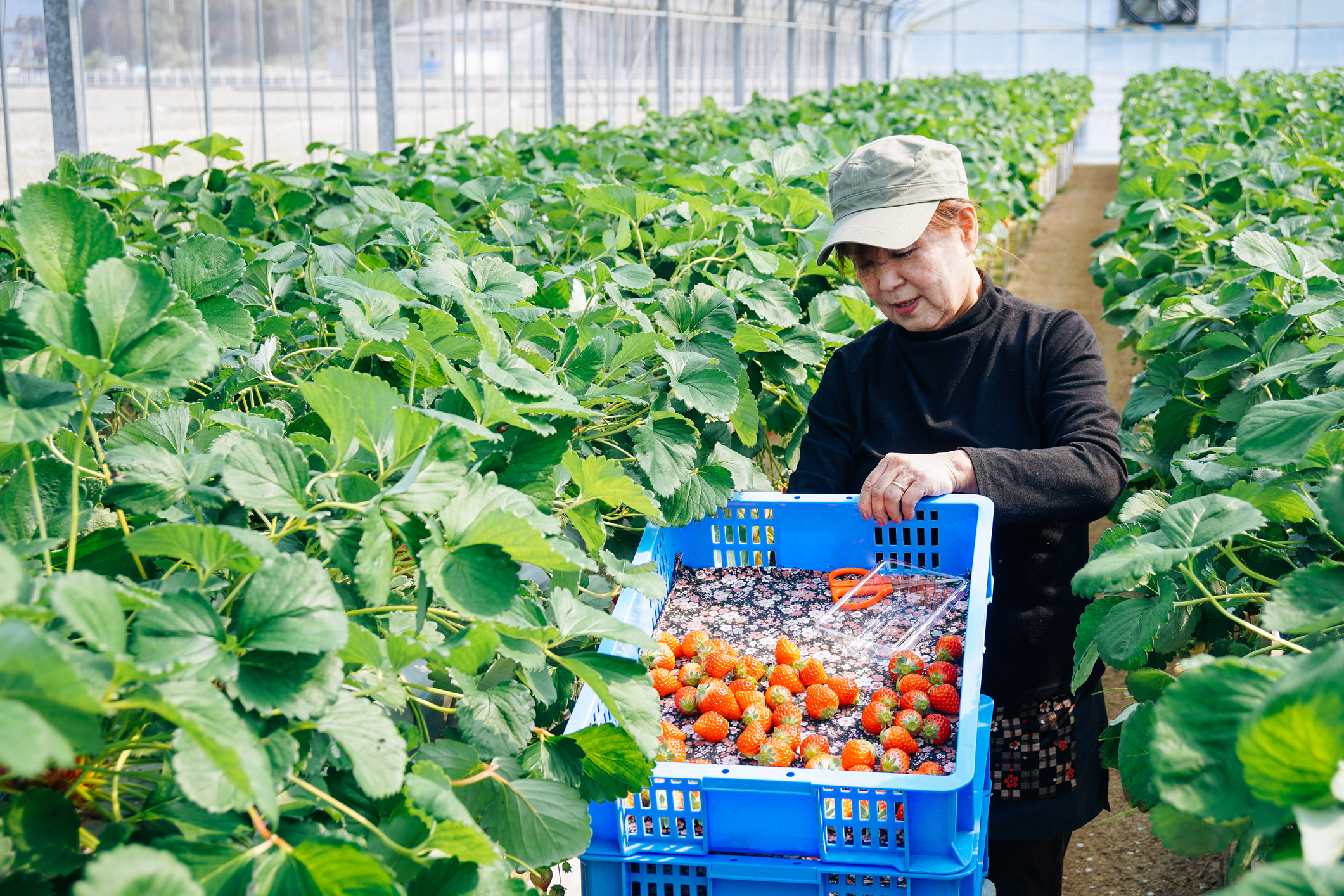
Request for Proposals on value of career development within experiential learning
May 4, 2020
Design thinking to redefine your career: new CERIC literature search
May 28, 2020Case studies from the US and Canada show rural communities and industries are adopting creative approaches to attract new talent
Kristin Kirkpatrick and Scott Fisher
This article was also published in the Summer 2020 issue of the National Career Development Association’s Career Developments magazine.
Agriculture to fill talent pipelines with diversity lens

As global population growth booms over the next three decades, reaching around 9.7 billion people by 2050, experts estimate that we’ll need to produce more food in the next 30 years than we have had to produce in all of human civilization. To add complexity to that challenge, we will be seeking to meet the demand for food while needing to use fewer resources and creating a lighter environmental impact than ever before. In fact, earlier this year, the USDA (United States Department of Agriculture) announced its ambition to increase agriculture production by 40% while cutting the environmental footprint by half. Across the industry, there is broad recognition that the solutions to tackle these challenges will focus heavily on innovation that might drive production while lessening environmental impact, most likely through the deployment of existing and emerging technologies such as precision agriculture, genomics, precision breeding, predictive data analytics, and so on. However, we need to focus on more than the technology. We also need to think strategically about building the teams that will create this innovation and the individual contributors needed to power this work.
This focus on the challenge of feeding our future led to the formation of an industry consortium in 2016 called Together We Grow (TWG). Started by Michael D’Ambrose, the Chief Human Resources Officer of ADM, and Secretary Tom Vilsack, who served as the Secretary of Agriculture under former US president Barack Obama, TWG is working across the country to create awareness and opportunities for more people to do the important work of feeding our world. Together We Grow is a consortium of some of the world’s largest agribusiness interests focused on building a skilled, diverse and inclusive agricultural workforce in collaboration with nearly 50 members – including modern food and agriculture companies, educational institutions, government agencies and national non-profits – committed to improving and expanding diversity in agribusiness. For example, member organization Land O’Lakes, a Minnesota-based agricultural co-operative, has been working to more effectively reach and retain Latin talent in agriculture. The consortium sponsors invest in research to create scalable pilot projects and provide a platform to share best practices for building future workforce capacity.
Diversity is a proven strategy for driving innovation. According to research compiled by McKinsey & Company (Hunt, Layton & Prince, 2015; Hunt, Yee, and Prince, 2018) and also by the Harvard Business Review (Rock & Grant, 2016), diverse teams generate more solutions to a given problem, they are more objective and careful when discussing facts, they generate more innovations and they are also more profitable. TWG’s Center for an Enhanced Workforce in Agriculture has defined diversity broadly and is tracking gender, race, ethnicity, sexual orientation and gender identity, ability and veteran’s status as starting points.
Meeting the next 30 years of complex challenges related to global hunger and food insecurity is not something that any one organization can do individually. As a consortium of diverse interests, Together We Grow aims to help more people from diverse backgrounds see their own future as leaders in agriculture.

iStock
Growing diversity pipelines among our rural workforce
Professions North/Nord (PNN) is a unique regional Canadian program to develop new talent pipelines among diverse populations. Our strength is in our ability to reach individuals across an area of approximately 800,000 square kilometres. Add to the equation that the area is sparsely populated with large distances between centres and the challenges became daunting. However, the project has prevailed, developing techniques and tools that are well equipped to handle these conditions. These techniques/tools have been applied to further assist in the attraction of skilled professionals to add to our rural/remote/northern workforce. Many of these professionals are immigrants with international training and non-portable credentials that have not been recognized, as new residents of the province.
PNN was established in 2010 and is a part of a network of bridging programs. These bridging programs –mostly in the larger urban areas – facilitate the transition of highly skilled foreign-trained professionals into the labour market. PNN is part of the Faculty of Management at Laurentian University in Northern Ontario. Although it may seem like a very distant and remote area, Northern Ontario has so much to offer to professionals and families. A constant challenge has been to erase inaccurate stereotypes, and to instead highlight the wonderful opportunities and quality of life in our centres and region.
One project that has been developed to promote our centres to highly skilled-yet-unaware-talent pools of professionals located in larger, urban areas was to develop “Spotlights.” These were interactive, live-streamed events that promoted our northern/rural/remote areas with the purpose of attracting new talent to our area. The presenter was located in the city/region that we were highlighting, while all logistical aspects were co-ordinated through our central office—sometimes 16 hours away. During the real-time streaming, individuals had the ability to join in from anywhere; some would join from a classroom, others would join from their home or, in some cases, they would join from their car during a lunch break at their survival job. Not only those in Canada were participants; others were participating from abroad from countries including China. It was a robust and easy-to-use platform. Additionally, screen shares were incorporated – alternating between live video from the central office and the remote presenter – and dynamic chat features allowed for a seamless and fuller experience.
A key lesson learned is that the connection becomes meaningful when it is possible to simulate a realistic, live experience for the audience members. This has been instrumental in promoting our region (rural/remote/northern) to the masses in larger, urban areas that are surprised to learn about the opportunities and quality of life that our region can offer. Once this meaningful connection is established, there is a much stronger message – and more success – in attracting and growing our workforce.
Scott Fisher, MA-IOP, CCDP received his master’s from Colorado State University and has been a Certified Career Development Professional for over 15 years. He is currently a Project Manager for Professions North/Nord at Laurentian University in Sudbury, ON. Fisher serves on the Canadian Council for Career Development (3CD) board, and is a member of CERIC’s Content and Learning Committee.
Kristin Kirkpatrick, MURP is the Executive Director of Together We Grow and the Center for an Enhanced Workforce in Agribusiness hosted at Colorado State University. Kirkpatrick’s professional expertise centres on systems change to drive opportunity and equity. She received her Master’s in Urban and Regional Planning from the University of Colorado and her undergraduate degree from Colorado State University.
References
Hunt, V., Layton, D., & Prince, S. (2015). Why Diversity Matters. Retrieved from https://www.mckinsey.com/business-functions/organization/our-insights/why-diversity-matters
Hunt, V., Yee, L., Prince, S., & Dixon-Fyle, S. (2018). Delivering through diversity. Retrieved from https://www.mckinsey.com/business-functions/organization/our-insights/delivering-through-diversity
Rock , D., & Grant, H. (2016). Why Diverse Teams Are Smarter. Retrieved from https://hbr.org/2016/11/why-diverse-teams-are-smarter

